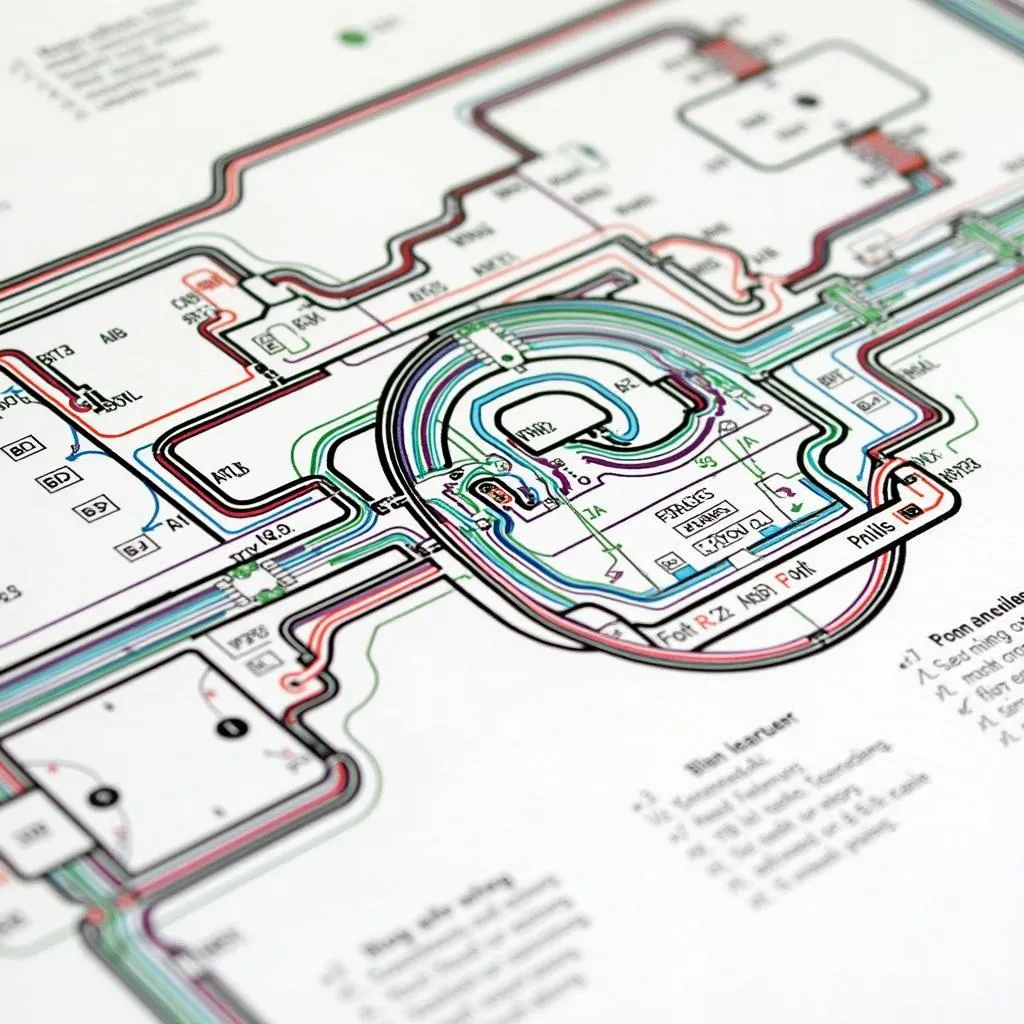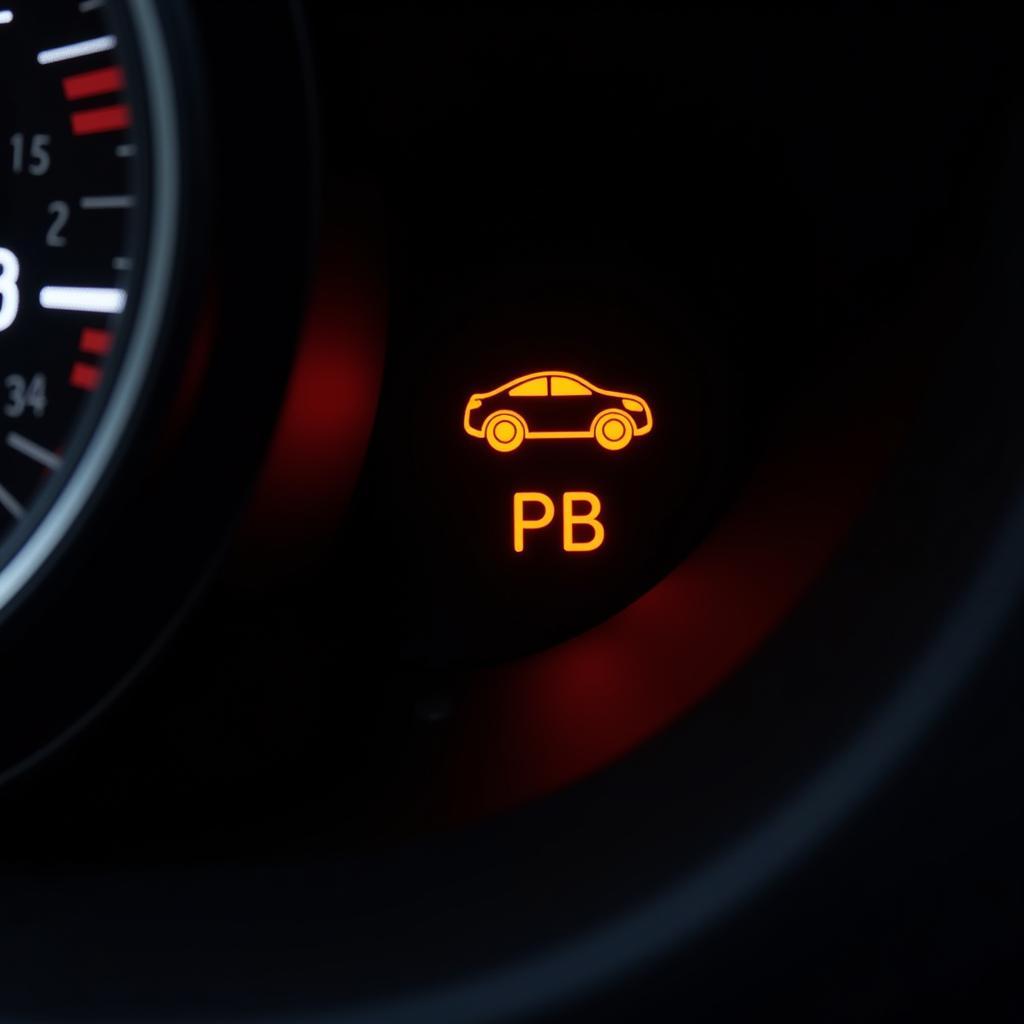The “AdBlue malfunction” warning on your Passat TDI can be a frustrating experience. It might seem like a small issue, but it can prevent your car from starting, or even lead to engine damage if ignored. This article will guide you through the common causes behind this warning, and provide practical solutions to help you resolve it.
Understanding AdBlue and Its Role
AdBlue, also known as Diesel Exhaust Fluid (DEF), is a crucial component in modern diesel vehicles like the Passat TDI. It’s a urea-based solution that is injected into the exhaust system to reduce harmful nitrogen oxides (NOx) emissions. When AdBlue is injected into the hot exhaust gases, it breaks down into ammonia and carbon dioxide, which react with NOx to form harmless nitrogen and water. This process helps your vehicle meet stringent emission standards.
Why You’re Seeing a “False AdBlue Warning”
While the warning light might suggest a genuine AdBlue problem, it could also be triggered by other factors. Here are some common causes of a false AdBlue warning on your Passat TDI:
1. Faulty AdBlue Sensor
The AdBlue sensor monitors the fluid level and quality. If it malfunctions, it may send inaccurate readings to the vehicle’s control unit, triggering a false warning. The sensor itself could be defective, or there might be debris blocking the sensor’s readings.
2. AdBlue Tank Issues
Problems with the AdBlue tank itself can also lead to false warnings. This might include:
- Low AdBlue level: Although you might have recently filled the tank, a faulty sensor could still register a low level.
- Contaminated AdBlue: If the AdBlue you used was contaminated or mixed with other fluids, the sensor could pick up an error.
- Clogged AdBlue lines: The AdBlue lines could be blocked by debris, preventing the proper flow of fluid.
3. Software Glitch
Sometimes, a software glitch in the vehicle’s control unit can lead to a false AdBlue warning. This can be caused by a number of factors, such as:
- Outdated software: The vehicle’s software might require an update to address potential bugs.
- Faulty communication: The control unit might not be receiving the correct signals from the AdBlue system, resulting in a false warning.
Troubleshooting and Solutions
Here’s a step-by-step guide to troubleshoot and resolve a false AdBlue warning on your Passat TDI:
-
Check the AdBlue level: Start by checking the AdBlue level using the vehicle’s gauge or by visually inspecting the tank. If the level is low, refill it with genuine AdBlue.
-
Inspect the AdBlue sensor: Locate the AdBlue sensor and check for any visible damage or debris. Clean the sensor gently with a clean cloth if needed.
-
Check AdBlue lines: Inspect the AdBlue lines for any signs of blockage or damage. If necessary, consult a professional mechanic for assistance.
-
Reset the AdBlue system: If the warning persists, try resetting the AdBlue system by disconnecting the battery for a few minutes. This can help clear any software glitches.
-
Software update: Visit a qualified Volkswagen dealership or a reputable repair shop to have your vehicle’s software updated to the latest version.
Expert Insight:
“Always use genuine AdBlue from a reputable source. Contaminated or counterfeit AdBlue can damage your vehicle’s exhaust system and lead to costly repairs,” advises Michael Carter, a certified automotive technician.
“If you’re experiencing a false AdBlue warning, don’t hesitate to consult a qualified technician. They can properly diagnose the issue and provide the best solution for your Passat TDI,” adds Sarah Thompson, an experienced automotive specialist.
When to Seek Professional Help
While you can try some troubleshooting steps yourself, it’s best to consult a qualified mechanic if the problem persists or you’re unsure about the diagnosis. They can use specialized diagnostic tools to pinpoint the exact cause of the false AdBlue warning and recommend the appropriate repair.
Frequently Asked Questions
Q: Can I simply ignore the AdBlue warning?
A: No, it’s not recommended to ignore the AdBlue warning, even if it’s a false one. The warning could indicate a serious underlying issue that needs to be addressed.
Q: Is it safe to use AdBlue from a different brand?
A: It’s best to use genuine AdBlue from a reputable source, as it’s specifically formulated for your vehicle. Using other brands could lead to compatibility issues and damage your exhaust system.
Q: How often should I refill my AdBlue tank?
A: The AdBlue refill interval depends on your driving habits and mileage. You can typically expect to refill the tank every 6,000 to 10,000 miles. Refer to your owner’s manual for specific recommendations.
Q: How much does it cost to fix a false AdBlue warning?
A: The cost of fixing a false AdBlue warning can vary depending on the cause and the required repairs. It could range from a simple AdBlue refill to more extensive repairs like replacing the sensor or software updates.
Q: Can I add AdBlue myself?
A: Yes, you can typically add AdBlue yourself. Make sure to use genuine AdBlue and refer to your owner’s manual for instructions on how to properly fill the tank.
Dealing with a false AdBlue warning can be frustrating, but by understanding the possible causes and following the troubleshooting steps outlined in this article, you can diagnose and potentially resolve the problem yourself. However, if you’re unsure or the problem persists, don’t hesitate to consult a qualified mechanic for professional assistance.


